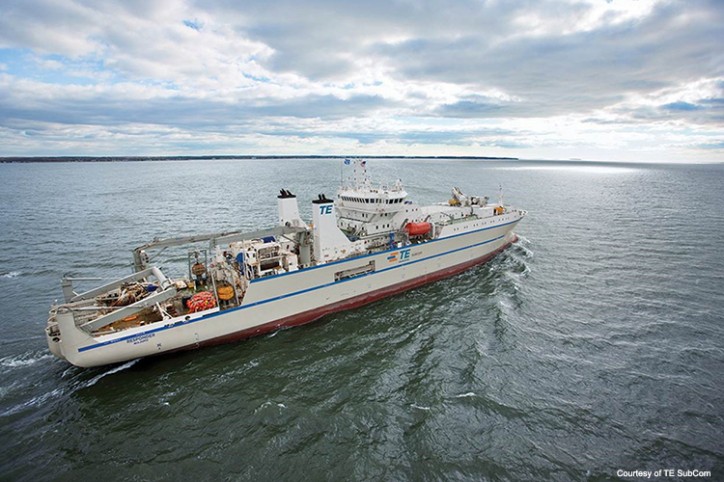ABS, a leading provider of classification and technical services to the marine and offshore industries, facilitated a Polar Code Operational Assessment, a milestone in the implementation of the IMO Polar Code. The assessment, which identifies operational risks and limitations, was performed with TE SubCom, a TE Connectivity Ltd. company and an industry pioneer in undersea communications technology, on its cable-laying vessel, Responder.
“Completing this assessment is a critical milestone for the marine industry and the first of its kind in North America,” says ABS Chairman, President and CEO Christopher J. Wiernicki. “As shipping routes expand into harsher and colder environments, industry needs a trusted advisor that can help navigate new challenges without compromising safety.”

Image courtesy of TE SubCom
To obtain a Polar Ship Certification (PSC), vessels undergo an assessment that defines the intended operational profile and identifies relevant hazards. Understanding these variables helps owners and operators select the most appropriate risk control measures for PSC compliance. In assessing TE SubCom’s Responder, ABS carried out extensive analyses of air temperature and sea ice data for the intended operational area, establishing a foundation for the assessment that led to a more thorough understanding of the associated operational risks.
“As a proactive, responsible vessel operator, we believe it is imperative that we embrace industry initiatives to protect our people and the environment, particularly as they pertain to the polar regions,” says TE SubCom Vice President of Marine and Network Construction Christopher Carobene. “Pioneering the implementation of these regulations with ABS grants us a more complete picture of our fleet’s preparedness for polar operations and enables us to confidently move forward with these regional projects. We are committed to conscientious operations in the polar regions, and are now better positioned to address our customers’ needs in those areas.”
Responding to the growth in polar operations, ABS set up the Harsh Environment Technology Center (HETC) in 2009. Partnering with Memorial University of Newfoundland and working with leading researchers in Canada, ABS supports the development of new technologies and innovations that advance safer operations in harsh environments. This investment has positioned ABS to lead the industry, with such guidance as the IMO Polar Code Advisory, which was published ahead of the entry into force of the IMO Polar Code to provide guidance in achieving compliance.
Source: Eagle.org